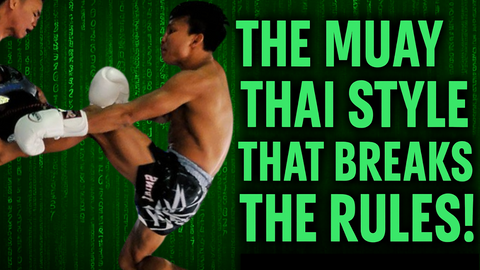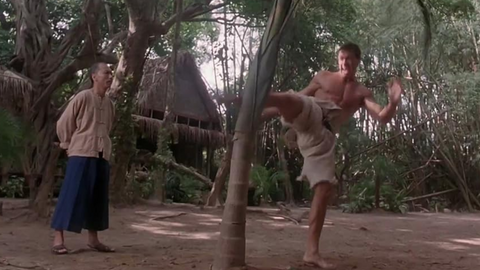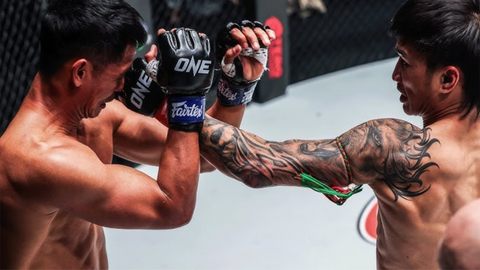Taking Ownership of your Development as a Muay Thai Fighter
By Allan Blackett
When entering competition in combat sports, the importance of taking ownership of your development as a fighter cannot be overstated. Whether you’re into Muay Thai Boxing, BJJ, or any other discipline, success extends far beyond just showing up to muay thai classes and practicing monotonously. It’s about being fluid, adaptable, and fully engaged in the process of your own growth and training, taking on a mindset of commitment and proactive engagement with one's training routine and development as a fighter – a philosophy that separates the dedicated from the casual.
Why Taking Initiative Matters
Competing in combat sports is not the place for the half-hearted or the uncommitted; it's a very challenging endeavor which can be brutal and oftentimes unforgiving. For spectators, it may be entertainment, but for fighters, it’s an intensely personal challenge that tests every facet of their physical, mental, and spiritual being.
It's a demanding journey that requires commitment to constantly refine, learn, and adapt, which is vital for a fighter's growth. Learning quickly is the only way to improve, thrive, and survive in combat sports.
"I believe the path to being the best is through the cultivation of skill and the relentless pursuit of knowledge and improvement."
― Georges St-Pierre

Importance of Self-Assessment
A crucial component of taking ownership of your training is the ability to self-assess. Identifying and rectifying your own weaknesses, such as bad habits and mistakes, is fundamental for your growth as a fighter. To correct bad habits and mistakes effectively, it’s essential to:
- Identify your mistakes: Acknowledge areas needing improvement.
- Correct them: Implement changes or seek guidance to help address these issues.
- Drill them out: Consistently practice the corrected techniques to ingrain them.
- Evaluate your results: Continuously review your progress to ensure the changes are effective and adjust as necessary.
The mental aspect of fighting is equally crucial as well. If you find yourself fighting in a state of panic, reacting impulsively rather than strategically, you’d know that your emotional discipline needs work. Developing strategies (such as deep breathing or visualization before a fight) to remain calm and focused under pressure, along with reflecting on your responses during sparring sessions, can help identify triggers and patterns of panic. Conversely, a tendency to fight too passively may signal a lack of confidence or fear of taking risks. In this case, working on assertiveness and building a mindset that embraces rather than avoids challenges can transform your fighting approach.
Every fighter is different; identifying gaps in your skills and diligently working to fill them is what leads to real growth. This process requires brutal honesty, humility, and the initiative to focus on the necessary areas for improvements. It's about understanding that believing in yourself, while essential, must be paired with a constant effort to evolve and refine all aspects of your game.
“If you know the enemy and know yourself, you need not fear the result of a hundred battles. If you know yourself but not the enemy, for every victory gained, you will also suffer a defeat. If you know neither the enemy nor yourself, you will succumb in every battle.”
― Sun Tzu, The Art of War

Stepping out of your comfort zone
Comfort is the enemy of progress. To excel in combat sports, you must push beyond your comfort zones from how you normally do things. This may include:
- Identifying areas where you feel least confident and deliberately putting yourself in positions during training to work on these.
- Seeking new sparring partners outside of your gym with diverse skill sets or higher experience, pushing you to adapt and strategize differently.
Professional fighters serve as prime examples of this. They take ownership of their training by consistently seeking ways to refine their skills both in and out of the gym. They analyze sparring footage, study fights and techniques online, and reflect on their personal strengths and weaknesses.
This approach, valuable at both the amateur and professional levels, highlights the importance of thinking beyond conventional training methods and embracing a targeted, tailored approach to development. Learning from the pros, amateurs can adopt the same strategies.
"The more you are willing to step out of your comfort zone, the more you will learn about yourself and your capacity to grow in technique, strength, and spirit."
― Rickson Gracie
Ultimately, owning your development as a fighter means embracing growth through self-assessment, pushing boundaries, and continual improvement. Success in combat sports is about the journey as much as the destination. Hope this helps.
By Allan Blackett
Fighter, Personal Trainer, Student of the Game





